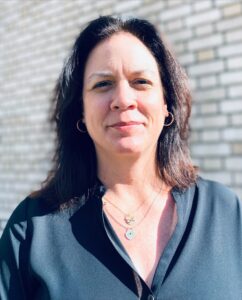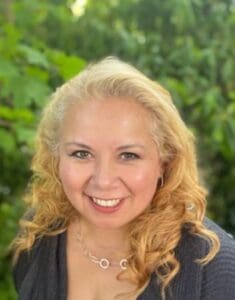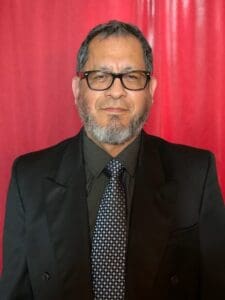National Hispanic American Heritage Month is from September 15 through October 15 each year. The month-long celebration honors the lives and contributions of people who have Latin American ancestry and their cultures.
Latinx and Hispanic peoples are extremely diverse, including people of different races, indigeneity, countries of origin, cultural backgrounds and more. While there is so much to celebrate about these peoples and cultures, it is also important to recognize that the United States has a history of marginalizing them; this oppression and discrimination came to a head in recent years due to anti-immigration politics and has not yet been resolved.
Despite this, Latinx and Hispanic people are resilient and have an even longer history of countless contributions to the cultural richness of the Americas. During the next month and beyond, it is important to recognize these contributions and celebrate Latinx and Hispanic people.
We asked several Latinx and Hispanic community members across UW Medicine what they take pride in about their heritage, what they want people to know about their cultures, and what our organization can do to honor those cultures.

Enedina Dumas
Enedina Dumas, MSN, RN, Strategic Outreach Manager, Center for Women & Children
“Being a Mexican-American is the most important and beautiful thing about me. As a first generation Mexican, I appreciate the difficulties and the hard work my family and I have endured as migrant farmworkers. This has molded me into the person I am today. I have a deep appreciation of my background and the value of family in all that I do. Family support has been integral to my success.
Any reason to celebrate is inclusive of all the family, large gatherings with delicious Mexican foods, music, dancing, libations and laughter. There is genuine joy in being with each other and sharing of our lives with each other. Another favorite cultural tradition is gathering family together to make many dozens of tamales at Christmas time. The work of making these delicious tamales is a fun event when there is music, chisme and laughter. Then the whole family comes over for the real party and to help eat the tamales.
We need to recognize that there are many Latinx/Hispanics in our midst that are making a difference in our work environment. We can incorporate Latinx/Hispanic foods in the cafeteria and play a little cultural music in the background while people make their food selections. Also adding some cultural options on the menu for our Latinx/Hispanic inpatients is important. And finally, assuring there is access to all information in Spanish, written and via interpretation.”

Nina Maisterra
Nina Maisterra, MD, Family Physician and Clinic Chief at UW Medicine Primary Care at South Lake Union
“I am Mexican American and grew up in Los Angeles. I really enjoyed the experience of growing up there and hearing Spanish spoken all around me and enjoying the foods from our local restaurants. It is not as easy to find that here in Seattle! My heritage means a unique way of seeing the world with a priority placed on family and hard work. I am proud of the contributions made by our community and would like people to know that there are many facets of the Latino community and we come from many varied backgrounds, regions and traditions.
To honor our community, it is important to work to support healthcare equity and social justice, encourage members of the Latino community to join the medical profession and ensure that Latinos see themselves reflected in leadership and at every level of the organization.”

Jose Flores-Rodarte
Jose Flores-Rodarte, MD, MPH, Chief Resident in Family Medicine
“I am a proud immigrant to this country, born in Mexico, and I would not be where I am today without our values around respect, self-reliance, family and hard work that my parents instilled in me. In addition, having Spanish as my first language and being fluent has opened so many doors for me at home, abroad and with the patients I serve.
One of my favorite cultural traditions is Christmas/Las Posadas/Three Kings Day, basically making Christmas celebrations extend for weeks on end and getting to have all the tasty holiday food like bunuelos, atole, pozole and tamales. Our amazing culinary legacy: tacos, enchiladas, burritos, quesadillas, mole, ceviche, tequila, mezcal, and how we gave chocolate and chilies to the rest of the world. Pinatas and tres leches cake at all my birthdays growing up. The importance placed on family and family ties.
I wish people knew how large and diverse Mexico itself is, and how foods and traditions vary from one state or region to another. It’s not a monolith, despite many common threads. The same can be said about pretty much all of Latin America. There is so much diversity to celebrate in our own culture!”

Michelle Ann Cardenas
Michelle Ann Cardenas, MS, PA-C, Assistant Director Advanced Practice Providers, Department of Orthopedics
“I grew up a migrant farmworker, cutting asparagus and picking fruit since I was eight. People looked down on us. Part of me felt self-conscious but I was surrounded by so many wonderful people who were like me. Now being Latina means I’m strong and I can do anything.
I wish people knew that my culture is so diverse in food, appearance and traditions. I was named after the song Michelle by the Beatles, but my mother called me Chelana growing up. I listened to pop/rock like everyone else, but we listened to Spanish and country music too. I still listen to Charlie Pride and Freddy Fender to relax.
I recommend people take some time to learn the differences in the Latinx/Hispanic cultures, we are so different. Take note of your perception of our people, try not to have pre-conceived ideas that limit our opportunities.”

Eva Lopez
Eva Lopez, Program Coordinator, Harborview Medical Center
“Hispanic heritage means one word to me: Familia. Familia represents our relatives who were born into the family and it also includes the ‘adopted’ members who have become instant family due to their love and care for us. The friends of our youth become Primo/Prima while the lifelong friendships who have stood the test of time have become Tio/Tia. (Cousin or Uncle/Aunt respectively.)
My favorite Hispanic cultural tradition is Fiestas. Fiestas revolve around family, food and music. A fiesta or party can be as simple as celebrating the birth of a baby to celebrating a Quinceañera with pastel de tres leches or celebrating holidays such as Noche Buena (Christmas Eve) with plenty of delicious fresh tamales to a summertime outdoor carne asada (outdoor grilling). All filled with lively music, laughter and an endless supply of memories.
I would like people to take the time to listen, taste, see and learn all that my culture has to offer. We are rich with colors, vibrant with flavors and refreshing with music. We have a history that has its full share of tragedies but has a strong future with endless strength and empowerment.
I would like to see clearer pathways for Latinx/Hispanic (and other POC) employees advance into leadership roles and management positions. To honor our Latinx/Hispanic culture I would like UW Medicine to incorporate our artwork into the building and designs of new offices being constructed. I would like to see more of ‘me’ around UW Medicine not just during the designated month. I do appreciate the focus on Latinx/Hispanic Heritage during the month; however, I would just like to see it around me every day the other 11 months out of the year.”

Claudio Bravo
Claudio Bravo, MD, Assistant Professor, Advanced Heart Failure & Transplant Cardiology
“It is difficult to find the uniqueness of having a Latin/Hispanic heritage, probably because I am a recent immigrant, and this heritage is just embedded in myself. However, I would say that the Latin/Hispanic heritage means a history of sacrifices, hardships and is the result of a cultural mix between European and native customs. At the end of the day, the love towards our families and friends is the main guidance of our society.”
“The Hispanic culture is heterogeneous, with significant differences between Caribbeans, Centro Americans, and South Americas. In Chile, which is the country where I grew up, my family and friends either go through natural disasters such as earthquakes or social unrest. But Chile is also full of natural and cultural attractions. On September 18th, we celebrate one of the most picturesque celebrations in Chile, the national independence day called ‘Las Fiestas Patrias’. Empanadas, music, colors, food smells, and traditional games fill the communities throughout the entire length of our country, getting families and friends celebrating for several days this national day. If you visit Chile, go to the beautiful city of Valparaiso, the city where I grew up, and all my dreams started included migrating to this wonderful country, the USA.”

Xicotencatl A. Ceballos
Xicotencatl A. Ceballos, MSW, CDP, Medical Social Worker
“I was born in Mexico City and grew up in a small town in Jalisco state named El Salto. I was raised by my maternal grandparents. They raised me up with solid and strong ethical and moral family and community values. In my culture, our Abuelos (Grandparents), are the nucleus of the family.
I am very proud of my Latino heritage; my Mexican culture is extremely rich in historical pre-Hispanic traditions, and we all know our neighbors. I remember, for example, when there was a birthday at home, my grandma used to cook a very traditional and delicious food, and she used to share some portions of it with the neighbors.
I would recommend people to visit Mexico and visit the archeological pre-Hispanic pyramids that are located all over Mexico. Especially Teotihuacan and the Mayan ruins. I believe that not many people know that the biggest pyramid in the world is in Cholula in the state of Puebla. I invite people to visit Mexico and to immerse into the small towns and enjoy the rich Mexican cuisine.
I am going to finish by quoting Benito Juares (Mexico’s president in the 1860’s from indigenous ancestry): ‘Among individuals, as among nations, respect for the rights of others is peace.’ ‘Entre Individuos, asi como entre naciones, el respeto al derecho ajeno es la Paz.'”


